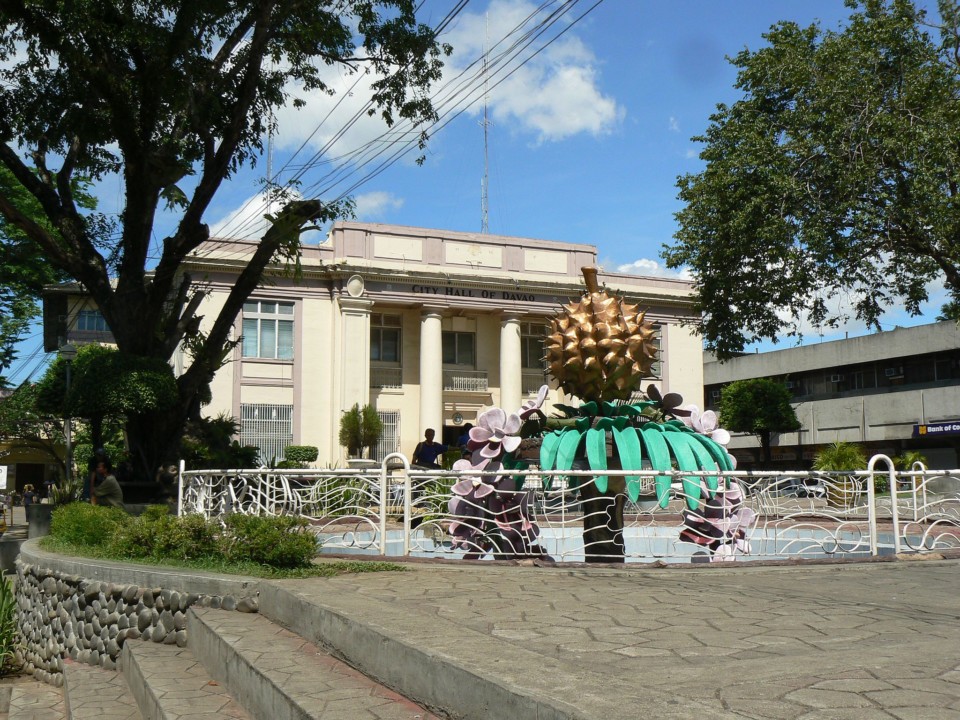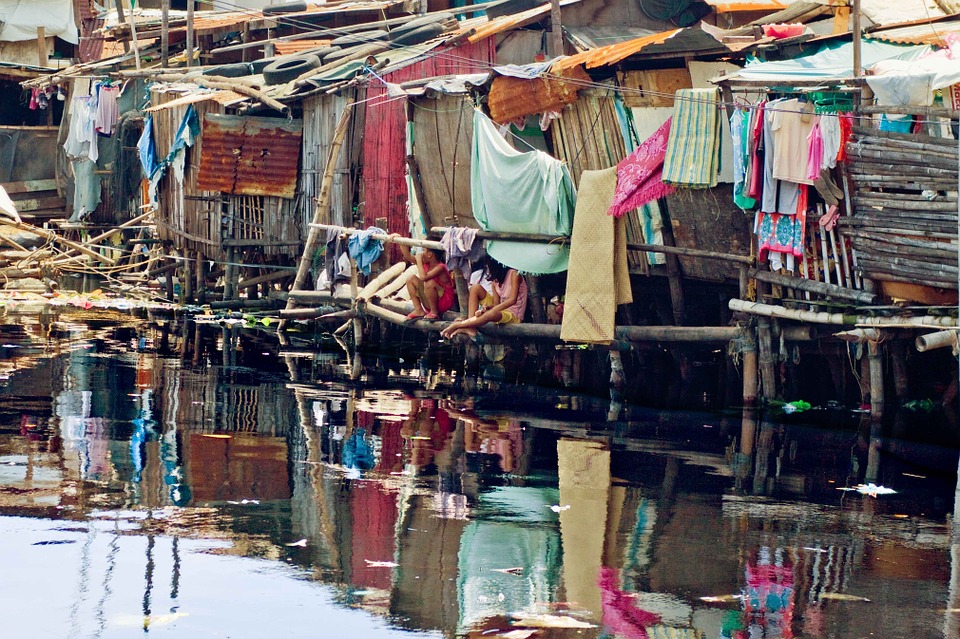I was thinking this morning about all the things Duterte hates and I’ve realised he’s “gone to war” on an impressive list of ills since he came to power.
He’s publicly attacked the media. He’s locked horns with the Americans. He’s gone up against the EU, his own cabinet, drugs, corruption, smoking, traffic and even the PNP.
He’s apparently managed to “clean up” the Philippine National Police in less than a month. The country’s drug problem will be solved, although apparently not in the first few months of his term as he promised.
The Killing Squads: Inside the Philippines’ ‘War on Drugs’ https://t.co/q6TnSDJIcG
— Sanho Tree (@SanhoTree) March 6, 2017
He’s basing all of this on his wonderful achievements in Davao. A city where, as recently as December “high value” drug targets were still being nabbed.
A city with a population of 1.5 million people, which has been ruled by a firebrand mayor for over 20 years. A mayor who has sworn to completely rid an archipelago of 100 million people spread across 7000 islands of drugs in a few months.
How is this possible when there are still drugs on the street of his crime-free utopia? I’m confused. I mean I fully support the concept of drugs being removed from society. The problem is huge.

Speaking of civilised societies. At least half the families in my barangay (which is comparatively well off) can’t afford to feed their children protein more than a couple of times a week. Anyway, I digress. Or then again, do I?
A lot of those children who got picked up and paraded through town as drug users a few months ago come from those families. Of course, correlation doesn’t equal causation. I’m sure that there is no way that providing opportunities and support for starving people who have no way to earn an honest income couldn’t possibly encourage at least a solid percentage of them to turn away from drug dealing.
After all, drug dealing doesn’t have an economic component – surely? As Mr Duterte has rightly said, so many times, drug addicts are scum, drug “pushers” even lower. They should be smote and crushed.
It’s interesting, a lot of these people smoke cigarettes too. So naturally increasing tax on the wicked weed is going to make them quit, right? Just like banning smoking in public places and opening them up to the possibility of a financial penalty and arrest is going to work. Raising alcohol prices should be next on his list.
All of these things should be done before worrying about the poverty problem. Surely increasing taxes on things that poor people spend a large percentage of their income on will just cause them to stop immediately, won’t it? Surely the motivation behind tax increases on widely consumed products has nothing to do with feathering the treasury’s nest – perish the very thought!

That’s why drug addicts don’t resort to burglary to fund their expensive habits, right? That’s why people don’t break into liquor stores in places with heavy sin taxes in place, isn’t it? Indeed, that’s why there is no black market for tobacco in places like Hong Kong, the UK and New Zealand. Taking people who are addicted to things and charging them more for them makes them quit immediately. It’s the great panacea, the solution to all of society’s ills.
Oh, and then there’s the whole birth control thing. Surely large families are the solution to poverty, not a cause of it! While he is often highly critical of the Catholic Church. I don’t remember very many people in government taking an equally vociferous stand against their response to the condoms in schools initiative.
Anyone reading this has most probably worked out by now that my tongue is firmly in my cheek. I’ll abandon the lowest form of wit for a few paragraphs and tell you a story instead. Let’s have a look at two examples. A fictitious friend of mine who lives down the road, who I’ll call Marcel, and me. I’m happy to call me Dave.
Marcel’s life: He lives in a small provincial town, loves a drink, smokes like a chimney, has two kids banged up for shifting gram bags to make enough cash to buy food for the family. Has a large family of 11, drives a tricycle and is lucky to take home 1,500 pesos a week. His wife gets a bit of work here and there. She throws a couple hundred a week on top of Marcel’s meager income. Let’s be generous and say that, together, they average 8,000 pesos a month between them. That works out to roughly 24 pesos per day per person in the family, or a daily family budget of 264.
What is the Two-tier Sin Tax System? Watch this report by CNN Philippines Correspondent @ClaireJiao. https://t.co/O8uOXaPkuJ
— CNN Philippines (@cnnphilippines) February 1, 2017
Out of this budget, Marcel buys a small bottle of gin (50 pesos) and a packet of cheap cigarettes every two days (15 pesos per day). We’re down to under 200 as it is. That’s a budget per meal of six pesos per person. 11 cents US. What’s going to happen if the price of gin and cigarettes go up by 20%?
Do you really think Marcel is going to stop it all suddenly in an act of virtuous responsibility? People aren’t wired like that. The extra pressure on his budget might even drive him into pushing a little gear here and there. Perhaps even robbing someone. This happens in Western countries every day. People shoplifting to eat. People stealing liquor to fund their habits. Now Marcel, unlike many other people has no interest in consuming drugs, but dealing – why not? It’s low hanging fruit with a lot of flesh.
All of a sudden Marcel has gone from mildly imperfect father to public enemy number one. A few days later, Marcel gets shot or incarcerated. The tricycle, which he didn’t own outright in the first place, is taken back by its owner and rented to someone else. His family? Nothing. Ashamed of his transgressions, shunned by their neighbours and out in the cold, they have no choice but to do whatever they have to do to survive.
His wife, so desperate to feed her children, resorts to picking up where Marcel left off. She is imprisoned. Her kids? Starving quite literally to death. The eldest resort to whatever they have to do to feed the younger ones. The cycle continues. Marcel’s eldest daughter ends up in Angeles City, hooked on shabu and selling her fanny. His eldest son? What he can’t beg or borrow he steals.
What was at the core of all of this? It can’t have been Marcel’s habits. Putting the prices up was supposed to cease his consumption. Governments are always altruistic in their intent when it comes to raising taxes. They don’t want the money, they just want to help out guys like Marcel and his brood. That’s why in countries like New Zealand and Australia, where cigarettes are already heading for $50 a packet, the government’s balance sheet would improve if everyone kicked the habit, surely. Or would it?
That’s why countries that have extremely good drug enforcement policies, again, I’ll cite New Zealand (where the price of a gram of shabu is anywhere up NZ$800 as compared to NZ$30 here) doesn’t have a meth problem. Or does it?
In any case, back to Marcel and myself. I drink the comparatively expensive San Miguel Pale Pilsen. I smoke imported cigarettes. I do both in quantities that would see Marcel drunk under the table coughing his lungs out. What happens to me if everything goes up by 20%? I’ll just wear it. It won’t affect my family budget in a serious way. What will I do if things in the country become untenable? I’ll book a ticket somewhere else.
Here’s the thing about increasing taxes on commodities that poor people consume a lot of. It’s not about the actual dollar cost, it’s about the percentage of their family budget that cost consumes. Where Marcel is right up there at the 20-30% mark, mine is closer to 5-8%. That makes a huge difference.
Of course the tale of Marcel is a worst-case scenario. I’m not suggesting that is how it would go for everyone, but there is enough historical evidence all over the “developed” world that increasing costs on things that people are hooked on does not stop them consuming them.
The same goes for prohibition. How did Portugal score some runs against its huge drug problem? Not by killing people, increasing black market prices and locking people up. No, instead by decriminalisation. To be a user (of anything from weed to heroin) is no longer a crime. That means that users who do want to quit are more likely to end up in rehab than gaol. It also lowers the risk of those whose only crime is often a few poor choices around who they hung out with in high school becoming mired in the viscous cycle that is the criminal justice system.
How about America’s “war on drugs”. How many states have legalised Marijuana now? The federal government will have to normalise its own laws very soon. Just to make sure it collects all those income taxes.
Increasing prices on substances, be it by putting pressure on the black market by increasing the risks to purveyors or by increasing taxes on legal substances doesn’t work. Prohibiting substances only increases the size and value of the black market (thus decreasing tax revenue). How does one “fix” these problems? As any journalist learns very early on in his career, if you’re researching a story – follow the money.
It makes the world go round, it puts food on people’s dinner tables, clothes on people’s backs and roofs over people’s heads. Am I advocating a full welfare state? No, I don’t think they work.
I am suggesting a substantial investment in creating opportunities in the poorer provinces, free university education and an increase in the standards of public schools. All very (uncharacteristically) left-wing of me, I know. The bottom line is that alleviating poverty stops poor people doing things that are a blight on society. The “problem of drugs” is easily solved. Stop calling it a crime, start calling it a health problem and look at what underpins that health problem.
